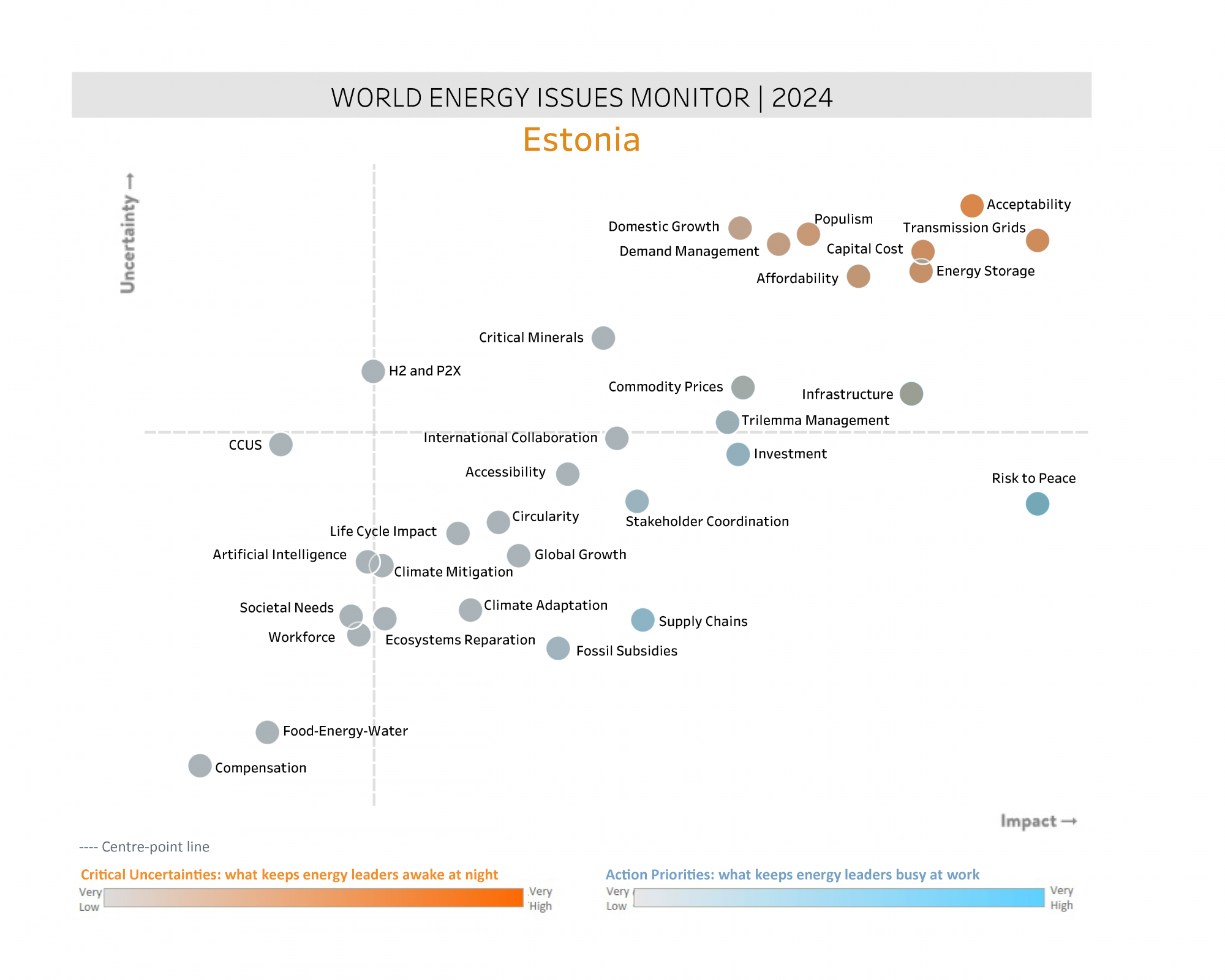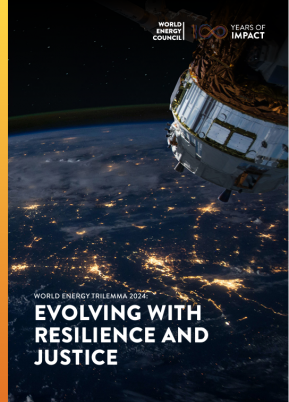Estonia has been a member of the World Energy Council since 1937. Estonia was then represented by the National Power Committee, led by Director J. Veerus and Professor P. Kogerman. In 1998, the 17th World Energy Congress in Houston formally reinstated Estonia’s membership of the World Energy Council. The Estonian Member Committee of the World Energy Council was founded on 16 July 2003 by the Ministry of Economic Affairs and Communications, Estonian Academy of Sciences, Estonian Power and Heat Association, Tallinn Technical University, Eesti Energia AS and AS Eesti Gaas.
Andrus Durejko is the CEO of Enefit from April 2023. Enefit operates in the Baltic and Nordic electricity and gas markets, as well as the global liquid fuels market. Enefit offers energy solutions ranging from electricity, heat and fuel production to sales, customer service, and consulting.
Prior to Enefit Andrus Durejko was working as Chair of the Management Board at Ericsson Eesti and Ericsson Latvia. In addition, he has worked as an Ericsson Eesti AS Board Member in the field of technology, program director in Nordic and Baltic countries and chief technology officer. He was also Regional Director of Ericsson Ukraine in the field of mobile core networks.
Andrus Durejko is an Advisory Board Member at the AI and Robotics (AIRE) Center.
He has graduated from Estonian University of Life Sciences in Electrical Power Engineering (M.S) and completed MBA courses in Estonian Business School.
Priit Mändmaa was appointed as a Secretary General of the Estonian Member Committee of the World Energy Council in 2018. Prior to joining the World Energy Council he was working for the Estonian Competition Authority as a lawyer and a deputy head of the Energy Regulatory Division. He holds a bachelor and masters degree in law from the University of Aberdeen and is in the process of acquiring a PhD from the Estonian Business School.
Energy in Estonia

The Estonian Issues Monitor 2024 map reconfirms the nations devoted movement towards energy transition and climate neutrality goals as well as the geopolitical issues arising from the war against Ukraine.
The Issues Monitor 2024 report reveals that the top Action Priorities for the Estonian energy leaders can be divided into two groups: (1) Geopolitical Issues consisting of Risk to Peace, Supply Chains, Investment, and (2) Regulatory Issues consisting of Infrastructure, Trilemma Management.
In the former Issues Monitor maps of 2021 and 2022, Geopolitics was the top critical uncertainty. This year, however, Geopolitical issues have shifted from top critical uncertainty to top action priority. Risk to Peace is considered by far as the most impactful action priority on the map. Due to the geographical location of Estonia sharing a border with Russia, there is no doubt that Estonia must act to avoid any type of risk to the energy security in specific and peace in general. To address energy security concerns, since 2007, the Baltic states have been working on desynchronizing the electricity grid from the BRELL area. In the same period, local traders in Estonia imported only a proportion of natural gas from Russia. Russian natural gas imports were restricted in a few months after the attack on Ukraine and thereafter the natural gas supply relied solely on liquified natural gas (LNG) sources. Also, the deadline for desynchronizing the electricity grid was brought forwards by a year.
Estonia has ambitious climate goals, and the Parliament has adopted a law that, by 2030, 100% of annual national electricity consumption must be generated locally from renewable energy sources. To achieve the goal, substantial investment is needed into infrastructure, including renewable energy sources. Moreover, the harsh weather conditions have put the distribution grids to the test and highlighted the need to invest in more weather-proof grid lines. Implementing measures to mitigate risk factors is key to securing the required investments.
Maintaining security of supply and energy security under high geopolitical risk is expensive. Finding the right balance between all the Trilemma indicators is an ever more important action priority to maintain the competitiveness of the economy.
The top Critical Uncertainties of 2024 are Acceptability, Transmission Grids, Capital Cost, Energy Storage and Affordability.
All these reflect the uncertainties surrounding Estonia’s energy transition. Building new offshore or onshore wind parks or solar parks requires Acceptability from local communities. Estonia has adopted a compensation scheme regulation for local communities which has brought some clarity and relieved the tension but nevertheless leaves the developers open to litigation from local communities and to the risk of the entire project being halted for years.
Large scale renewable electricity installations often need strengthened or new Transmission Grids which take a long time to plan and come with a high cost. Similarly, renewable energy developments are long-term financial allocations, and their economic feasibility depends on the Capital Cost. Given the competition among states for new investments and Estonia's geographical challenges, it is evident why capital cost is a critical uncertainty. To achieve the national climate targets and to overcome the risks described, it could bring about national subsidy schemes which put Affordability at risk for many years to come. On the other hand, there has been an exponential growth of solar energy with the maximum solar capacity already occasionally exceeding the demand load resulting in zero or negative electricity prices in the region during sunny summer days. Energy Storage would be a gamechanger to balance the market and the price volatility but currently still a little too expensive for an extensive roll-out to take place.
In conclusion, the 2024 Estonia Energy Issues Monitor map reflects the current trends and movements of the energy sector. Energy transition and geopolitics are the key words and directly lead way for the action priorities and critical uncertainties.
Acknowledgements
Estonia Member Committee
Priit Mändmaa, Secretary-General, WEC Estonia
Downloads

Estonia World Energy Trilemma Country Profile 2024
Download PDF
2024 Estonia Country Commentary
Download PDF
World Energy Issues Monitor 2024
Download PDF










